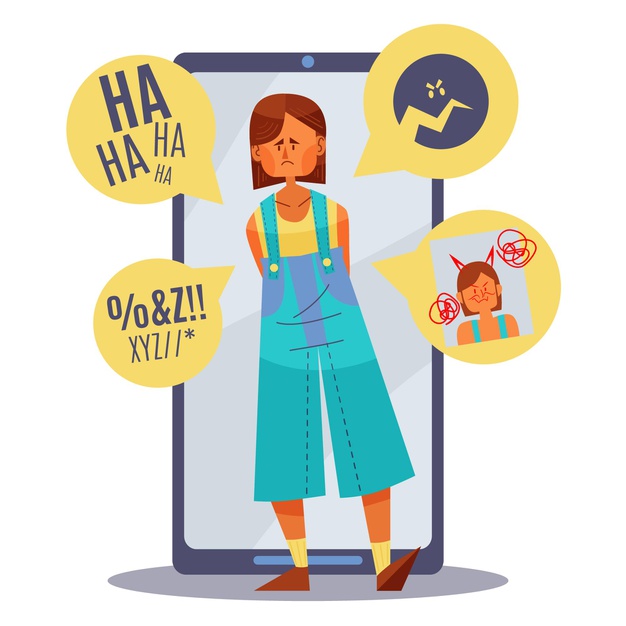
"I don't want to be in sports and have no confidence in my body anymore.. every time I am at school, I feel I am being judged on my body."- (Edwin, 11 years old on his body image.)
Researches show that children as young as three years old can be dissatisfied with their bodies and have body image issues.
What is "Body image"?
Body image is how you see yourself and how you think others perceive you for what you look. The need to be accepted plays a vital role in children to bother what people think about their looks.
Social media platforms like Instagram and TikTok promotes the unreal body type and appearance standards. When children, also young and adult people, find it difficult to perceive themselves to meet these standards, unhealthy mental situations and risky behaviors emerge.
Children being exposed to damaging posts on their feeds will adversely affect their confidence, self-worth, and mental well being. According to survey reports, more than 79% of 11-12-year-old children said they look essential. More than half the percentage are often worried about how they look, and 35% of children said they are concerned and are usually worried about their body image.
A large number of secondary school boys stated that they would consider taking steroids to attain the goals. Comments about your child(ren) 's body and appearance inside your family by your family members are no joke! 29% of children agreed that their confidence and relation between their bodies are affected by their family members' comments about their body and looks.
Media intrusion
Air brushed and unrealistic body images in social media platforms push individuals to compare how they look and how they are supposed to be accepted by others.
You can't shield your child(ren) from the idea of 'perfect body' media is fostering today through all social media and TV platforms.
Children and teenagers finding themselves most beautiful and flawless through mobile camera filters but do not see it equally impressive in real. The norms are being manipulated, and children are insecure about their realities.
Feeding fear and insecurities, dissatisfaction about natural human features, and questioning their self-worth are hidden in today's media platforms.
Thus, it's normal for them to underestimate reality and struggle to meet media expectations. Conceptions about popular and unpopular ways to look are all myths.
Promoting fake self-promotion is what the majority of social media content creators do. Mistaking it like real life and competing for personal satisfaction or to feel validated is a grieve mistake our children are up to
How it affects our children
Dissatisfaction on the body leads to risk taking behaviors and then to various mental health issues.
How to avoid this
*Speak kindly: Talking to yourself kind is a thriving primary step in preparing them to have a kind approach towards themselves. Children quickly absorb words and actions from parents.
*Establish a strong relationship between your body and yourself: Valuing your body, taking care of it and welcoming flaws in it, happily indeed, is such a happy thing you can show your kid(s).
*Try not to focus on appearance: Focus on people's character traits, beauty in actions, and more about them. Please give more attention to their kindness, empathy, charity, or whether they are hardworking or have good manners.
*Talk about body stereotypes in ads and media: View content with your child(ren). When commercials or movies, or TV shows boosting women's unhealthy trends and men's body figures, communicate with them the realities and facts about it. Make them realize why companies are doing such kind of promotions and how people fall for it. Show them the real beauty of natural bodies and help them accept the normality of natural bodies.
*Promote positive talking habits: Navigate their strengths right. Urge them to support each other and their friends if they face body image issues online or offline.